PPC stands for Pay-Per-Click, which is a type of online advertising model where advertisers pay a fee each time one of their ads is clicked. In this digital marketing world, achieving business goals has become very difficult for businesses of all sizes, and therefore the usage of powerful tools for driving targeted traffic has become an integral part of today’s digital marketing strategies. One such tool of digital marketing is PPC, which stands for “pay-per-click” and is a form of paid advertising tool.
By understanding the fundamentals of PPC and its benefits, businesses, and brands can make informed decisions about incorporating this advertising method into their marketing campaigns because it is an investment and not a marketing expense. PPC is like having a super-focused spotlight on your business, guiding the right people straight to your door with the help of paid campaigns. So, why should you care about PPC? Well, stick around as we break it down for you in plain language and give you eight solid reasons why it’s a game-changer for any business.
It is noticed that, in 2022, PPC brought in an average of $2 for every $1 spent, with an average cost per click (CPC) of $1.16. And while social media is still a popular place to advertise, 40% of ad spend in 2020 was spent on search (73% of that going to Google).
Let’s delve into the fundamentals of pay-per-click (PPC) for a better understanding of the term and what its benefits are for businesses and brands.
A. What is PPC?
PPC, or pay-per-click, is a type of digital marketing, or more specifically, the most popular sponsored search model. Generally speaking, it can be used to describe sponsored search, in which companies pay each time a user clicks on one of their advertisements. Essentially, it’s a way of buying visits to your website rather than earning them organically.
When someone clicks on your ad, they’re directed to your website or landing page, and you pay a small fee to the platform hosting your ad, such as Google Ads or Facebook Ads. PPC is often used to drive traffic, increase sales, and promote brand awareness, and it allows businesses to target specific audiences based on factors like keywords, demographics, and interests.
B. How does PPC work?
PPC works through an auction-based system where advertisers bid on keywords relevant to their target audience. In simple words, advertisers create campaigns that set a maximum bid for the keywords that they want to target through specific demographics, interests, locations, etc., and PPC advertising works by allowing advertisers to bid on specific keywords or phrases that they want their ads to appear for in search engine results.
Considerably, the search engine then uses a complex algorithm to determine which ads to show and in what order by taking some of the account factors of the advertiser’s bid account, such as the relevance of the ad to the keyword, the quality of the ad, and more.
C. What are the different types of PPC platforms?
There are several platforms for pay-per-click advertising, including Google, Meta, Microsoft, LinkedIn, and other platforms. where advertisers place bids on keywords, and when those keywords are searched for, their ads show up at the top of search engine results pages (SERPs). Further, PPC ads come in a variety of forms, including search, video, audio, retargeting, and more.

Facebook and Google ads are the two most popular forms of PPC
8 Reasons Why You Should Be Using PPC
There are numerous benefits to using PPC for your businesses and brands, but we have listed the specific eight to give you a brief idea of PPC. So, let’s jump to the points to understand in depth:
1. Help raise brand awareness
Setting up a PPC campaign requires less than an hour, and the results appear immediately in the sponsored section. The biggest benefit of paid search is the business’s or brand’s appearance at the top of the search engine results page (SERP). Considering that even if users don’t click on the ad, they may still see it and remember the brand, using multiple platforms in different formats can increase your brand’s visibility.
2. Provides flexibility and control
As PPC or pay-per-click, can be used to bid on keywords and phrases, one of its uses is that it can be used to address any details to the respective audiences related to a reputational event of the advertiser to directly land them up on the platform where they’re supposed to be. Therefore, this potential tool gives the advertiser the control to be narrative and professional.
3. Allows measurable tracking methods
When you are using paid marketing tools, such as PPC because then it is easy to track various parameters like – ad spent, keywords targeted, ROI, etc., and thus PPC provides an easy way to track growth. It allows marketers to measure various key performance indicators (KPIs) using their free-of-cost dashboard and built-in analytical tools. For example, if you are running Google or Facebook ads, you can anytime check the amount you spent in the last week, month, or quarter on a particular campaign and the conversions after spending on those campaigns.
Therefore, it becomes a lot easier for an advertiser to test campaigns with paid search, as every ad, keyword, and every penny spent can be tracked, allowing for a more accurate ROI.
4. Cost-effective method of marketing
We believe that in paid search, advertisers can select a budget for their campaigns, and it becomes more cost-efficient than traditional advertising methods, such as television and printing ads, because here the marketers only need to pay when a user clicks on their ad.
5. Provides quick results and impacts
With PPC advertising, one can get access to each search engine’s affiliate network websites and products, as well as the ability to schedule ads. PPC advertising can drive traffic to a website almost immediately, whereas SEO can take time to show results. It is observed that platforms usually approve ads the same day, providing maximum exposure almost immediately, and this could be a text ad via Google search, an image ad through Instagram, or even a video featured on YouTube, or something else.
6. Can be used as a complementing tool
Businesses and brands use both SEO (search engine optimization) and PPC (pay-per-click) for their marketing strategies because PPC can be used to supplement SEO efforts. While SEO focuses on website ranking and organic traffic, PPC can be used to drive immediate, targeted paid traffic to a website.
Both SEO and PPC can help improve the ranking of a website in search engine listings and could be considered a subset of Internet or Web marketing. The primary purpose of SEO is to get higher rankings on search engines organically, which in turn creates a larger target audience. Whereas, PPC is a paid marketing tool that is important because it allows for real-time control over your ad spend, ad targeting, and ad copy.
You may also like reading Search Engine Optimization: What is SEO and How it Can Help Your Business?
7. Helps in tracking goals
Tools such as Google Analytics can be used with PPC to track and see how the ads are performing in real time. Further, it allows one to decide what needs to be done to reach their specific goals more efficiently.
8. Helps in reaching out to targeted audiences
PPC advertising even allows advertisers to target individuals based on their behaviors and interests on social media sites such as Facebook, Instagram, Twitter, and more, which can help them reach their ad to the right audience where the possibilities of conversion into a sale are quite high.
Businesses looking to enhance their online presence and drive growth through targeted paid campaigns can opt for PPC, as it could be a game-changer for them in a very short time. When you use PPC, you’re not just investing in clicks; you’re investing in tangible growth, enhanced brand visibility, and increased revenue. However, it is crucial to understand and develop a well-planned marketing strategy with proper research because continuously optimizing campaigns can maximize the potential of PPC and help in meeting the desired goals. Whereas a poorly run ad campaign can just lead to a waste of money and resources without any realistic results.
FAQs on PPC:
1. What is PPC?
PPC, or Pay-Per-Click is an advertising or digital marketing model. In the PPC model, advertisers pay a certain amount whenever their website is visited. PPC models increase a website’s visibility for payments. It is an alternative to organic traffic.
2. Where do PPC ads appear?
PPC advertisements usually appear on search engines such as Google, Yahoo, and Microsoft Edge, as well as on social media platforms such as Facebook, YouTube, Instagram, Twitter, LinkedIn, etc.
3. What are the advantages of PPC advertising?
PPC is often preferred because it yields quick, tangible growth. It instantly increases visibility and traffic on the website and is also cost-effective because, in PPC, advertisers pay only for the results.
4. How can I get started with PPC?
It is easy to get started with PPC with just a few simple steps. You can begin by setting a clear and well-defined goal, conducting keyword research, selecting keywords to focus on, creating an appealing advertisement, and finally choosing the right platform according to your target audience.
Also Read 8 Reasons to Hire a Digital Marketing Agency (+4 Tips for Hiring One)
